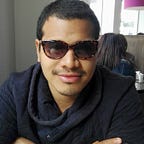Phenomenology And Star Wars
Was master Yoda a phenomenologist?
In my country, Peru, many people tend to say that sometimes you can learn more about life from the streets than from school. And every time I hear someone saying that, I think about the Star Wars scene where master Yoda causes the sacred Jedi texts be burnt before the view of the startled old SkyWalker. Aftwards he says to the disciple: “Skywalker, still looking to the horizon. Never here — hit — , now — hit - , hmm? the need in front of your nose- hit-”. Master Yoda hits Skywalker with his cane three times, trying to bring him back down to earth.
Manifestation: here and now of the flow of experience
It seems that Yoda wanted Skywalker to be in the here and now of the experience. In other words, he wanted Skywalker’s mind to be in the actual experience, rather than absorbed in — in who knows what — speculations.
We can’t blame Skywalker for such habit. We all human beings constantly engage in the wanderings of our minds. Like Luke before the lightning bolt burning the sacred texts, we tend to let our minds wander around whenever an unexpected tragedy happens. And yet, the power of the here and now of the flow of experience can bring us back to reality. The way in which such bringing back occurs is through what Yoda does: a hit. Experience unveils itself through a hit. That is, experience manifests itself.
Etymologically, a manifestation is a hit in the hand. Manifestation stems from two Latin nouns: manus (hand) and festus (hit). So, to say that experience manifests itself amounts to saying that it hits us in the hand so we can take notice of it.
Phenomenology: Study of Experience
Since the manifestation is the way in which experience draws our attention to the here and now of its flow, we can say that phenomenology is the path that takes us to the manifestation of experience.
Phenomenology is a technical philosophical term that became famous through Edmund Husserl. This philosopher, who previously worked as a mathematician, believed that through its method, which he describes as phenomenological, we could have direct access to experience itself. This promise would explain the usage of the term phenomenology, since it stems from the Greek nouns phenómenon and lógos.
As Heidegger, one of the most important disciples of Husserl and considered by many as the most relevant philosopher of the twentieth century, explains in various texts, etymologically speaking, phenómenon means, essentially, that-which-appears. Thus, phenomenology, that is, the treatise (lógos) of the phenómenon, amounts to saying the rigorous study of that-which-appears. But, what is the that which invariably appears to us? The experience. So, phenomenology can be taken as a rigorous study of the experience.
Phenomenological Method
According to Husserl, the phenomenological method consists in putting into brackets the existence of that which we perceive in general. He names this putting into brackets as epoché which in ancient Greek amounts to saying suspension of judgement.
Through the epoché we purportedly focus and the here and now of the experience. We describe the experience as it appears to us. For this reason, experience can also be understood as phenómenon , i.e. that-which-appears. We put aside all the assumptions that we may have and just let the experience speak to us in what it may have to say.
As Husserl wrote, back to the things themselves!
Conclusion
So, maybe many of my paisanos and master Yoda are right. Maybe, we don’t need to study so many books, but the experience! BUT … in order to efficiently learn from the experience, we might still need a rigorous method… so we might still need to read books to learn more about the phenomenological method (assuming that Husserl was right about it!).
